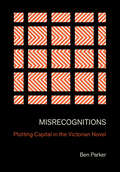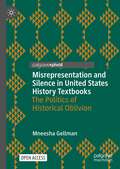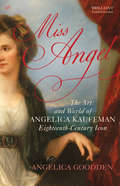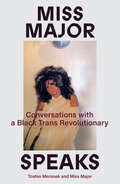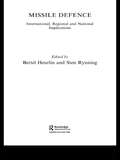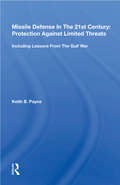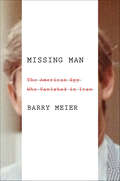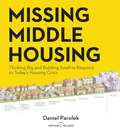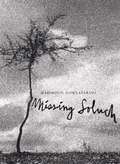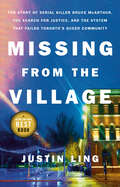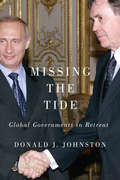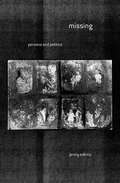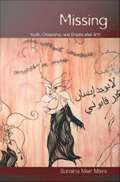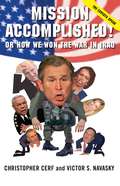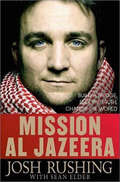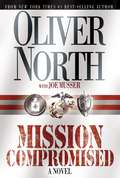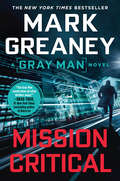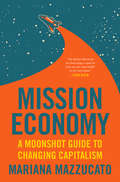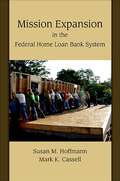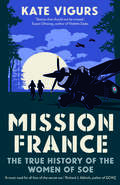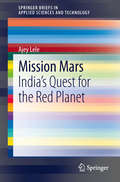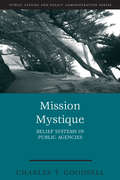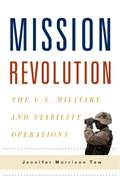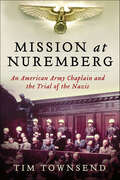- Table View
- List View
Misrecognitions: Plotting Capital in the Victorian Novel
by Ben ParkerMisrecognitions mounts a vigorous defense of the labyrinthine plotting of Victorian novels, notorious for their implausible concluding revelations and coincidences. Critics have long decried Victorian recognition scenes—the reunions and retroactive discoveries of identity that too conveniently bring the story to a close—as regrettable contrivances. Ben Parker counters this view by showing how these recognition scenes offer a critique of the social and economic misrecognitions at work in nineteenth-century capitalism. Through a meticulous analysis of novels by Charles Dickens, Anthony Trollope, and Henry James, as well as Arthur Conan Doyle's Sherlock Holmes stories, Misrecognitions tracks how the Victorian novel translates the financialized abstractions of capital into dramas of buried secrets and disguised relations. Drawing on Karl Marx's account of commodity fetishism and reification, Parker contends that, by configuring capital as an enigma to be unveiled, Victorian recognition scenes dramatize the inversions of agency and temporality that are repressed in capitalist production. In plotting capital as an agent of opacity and misdirection, Victorian novels and their characteristic dialectic of illusion and illumination reveal the plot hole in capitalism itself.
Misrepresentation and Silence in United States History Textbooks: The Politics of Historical Oblivion (Palgrave Studies in Educational Media)
by Mneesha GellmanThis open access book investigates how representation of Native Americans and Mexican-origin im/migrants takes place in high school history textbooks. Manually analyzing text and images in United States textbooks from the 1950s to 2022, the book documents stories of White victory and domination over Black, Indigenous, and People of Color (BIPOC) groups that disproportionately fill educational curricula. While representation and accurate information of non-White perspectives improves over time, the same limited tropes tend to be recycled from one textbook to the next. Textual analysis is augmented by focus groups and interviews with BIPOC students in California high schools. Together, the data show how misrepresentation and absence of BIPOC perspectives in textbooks impact youth identity. This book argues for an innovative rethinking of US history curricula to consider which stories are told, and which perspectives are represented.
Miss Angel: The Art and World of Angelica Kauffman, Eighteenth-Century Icon
by Angelica GooddenA word was coined to describe the condition of people stricken with a new kind of fever when the Swiss-born artist Angelica Kauffman (1741-1807) came to London in 1766. 'The whole world', it was said, 'is Angelicamad.' One of the most successful women artists in history - a painter who possessed what her friend Goethe called an 'unbelievable' and 'massive' talent - Kauffman became the toast of Georgian England, captivating society with her portraits, mythological scenes and decorative compositions. She knew and painted poets, novelists and playwrights, collaborating with them and illustrating their work; her designs adorned the houses of the Grand Tourists she had met and painted in Italy; actors, statesmen, philosophers, kings and queen sat to her; and she was the force that launched a thousand engravings. Despite rumours of relationships with other artists (including Sir Joshua Reynolds), and an apparently bigamous and annulled first marriage to a pseudo Count, Kauffman was adopted by royalty in England and abroad as a model of social and artistic decorum. A profoundly learned artist, but one who is loved, above all, for her tender adaptations from classical antiquity and sentimental literature; a commercially successful celebrity yet also a founding member of The Royal Academy of arts; the virginal creator of sexually ambivalent beings who was one of the hardest-headed businesswomen of her age, Kauffman's life and work is full of apparent contradictions explored in this first biography in over 80 years.
Miss Liberty
by Erin Moonyeen HaleyDumplin' meets the small-town drama of Gilmore Girls in this sparkling debut from Erin Moonyeen Haley.Twelve-year-old Savvy’s only ambition is to be chosen as Miss Liberty in her town’s glittertastic Fourth of July parade. In her mind, being Miss Liberty is key to getting everything you want for the rest of your life. And Savvy’s anxious mind needs to know what’s going to happen for the rest of her life, just like she needs to know what the weather is going to be like every single day. Unfortunately, Savvy is only a dancer in the kick line, while her older sister, Levi, is the glamorous Miss Liberty for the third year in a row.But this year, Levi seems committed to taking down the parade and crushing Savvy’s future dreams, for reasons that neither Savvy nor the town can understand.Only one thing is for sure: It’s up to Savvy to bring the glitter back to her beloved parade, her town, and her sister.
Miss Major Speaks: Conversations with a Black Trans Revolutionary
by Toshio Meronek Miss Major Griffin-GracyThe future of Black, queer, and trans liberation explored by a legendary transgender elder and activist Miss Major Griffin-Gracy is a veteran of the infamous Stonewall Riots, a former sex worker, and a transgender elder and activist who has survived Bellevue psychiatric hospital, Attica Prison, the HIV/AIDS crisis and a world that white supremacy has built. She has shared tips with other sex workers in the nascent drag ball scene of the late 1960s, and helped found one of America&’s first needle exchange clinics from the back of her van.Miss Major Speaks is both document of her brilliant life–told with intimacy, warmth and an undeniable levity-and a roadmap for the challenges black, brown, queer and trans youth will face on the path to liberation today.Her incredible story of a life lived and a world survived becomes a conduit for larger questions about the riddle of collective liberation. For a younger generation, she warns about the traps of &‘representation,&’ the politics of 'self-care,' and the frequent dead-ends of non-profit organizing; for all of us, she is a strike against those who would erase these histories of struggle.Miss Major offers something that cannot be found elsewhere: an affirmation that our vision for freedom can and must be more expansive than those on offer by mainstream institutions.
Missile Defence: International, Regional and National Implications (Contemporary Security Studies)
by Sten Rynning Bertel HeurlinThe missile defence policy of the US plays a crucial role in international affairs and is normally studied from a US perspective. This book is different, it delivers a sharp analysis of regional and national variations and integrates them with US viewpoints to present a rounded and comprehensive study. What will be the international ramifications of American plans to deploy a comprehensive national missile defence policy? This is a key question for all those wishing to build a sense of the global future and is here answered with clarity and rigour by expert contributors. This new study breaks the mould of traditional assessments that focus exclusively on the US world picture and are inevitably one-dimensional. Here we see that US action automatically entails reactions as this text advances a more balanced approach. By integrating a focus on US policy with a strong analysis of regional dynamics, it demonstrates that the global ramifications of US policy are indeed contingent upon distinct regional and national variations. These differences in turn have consequences both for the challenges the US faces in relation to missile defence and for the future of world politics.This is an innovative and groundbreaking study that contains lessons for those wishing to safeguard the future by becoming alert to its challenges and complexities.
Missile Defense In The 21st Century: Protection Against Limited Threats, Including Lessons From The Gulf War
by Keith B. PayneThis book examines the implications of emerging security environment for missile defense. It identifies the lessons concerning the questions provided by the Gulf War, focusing on the redirection of the Strategic Defense Initiative towards a capability for global protection against limited strikes.
Missing Man: The American Spy Who Vanished in Iran
by Barry MeierIn late 2013, Americans were shocked to learn that a former FBI agent turned private investigator who disappeared in Iran in 2007 was there on a mission for the CIA. The missing man, Robert Levinson, appeared in pictures dressed like a Guantánamo prisoner and pleaded in a video for help from the United States.Barry Meier, an award-winning investigative reporter for The New York Times, draws on years of interviews and never-before-disclosed CIA files to weave together a riveting narrative of the ex-agent's journey to Iran and the hunt to rescue him. The result is an extraordinary tale about the shadowlands between crime, business, espionage, and the law, where secrets are currency and betrayal is commonplace. Its colorful cast includes CIA operatives, Russian oligarchs, arms dealers, White House officials, gangsters, private eyes, FBI agents, journalists, and a fugitive American terrorist and assassin.Missing Man is a fast-paced story that moves through exotic locales and is set against the backdrop of the twilight war between the United States and Iran, one in which hostages are used as political pawns. Filled with stunning revelations, it chronicles a family's ongoing search for answers and one man's desperate struggle to keep his hand in the game.
Missing Middle Housing: Thinking Big and Building Small to Respond to Today's Housing Crisis
by Daniel G. ParolekToday, there is a tremendous mismatch between the available housing stock in the US and the housing options that people want and need. The post-WWII, auto-centric, single-family-development model no longer meets the needs of residents. Urban areas in the US are experiencing dramatically shifting household and cultural demographics and a growing demand for walkable urban living. Missing Middle Housing, a term coined by Daniel Parolek, describes the walkable, desirable, yet attainable housing that many people across the country are struggling to find. Missing Middle Housing types—such as duplexes, fourplexes, and bungalow courts—can provide options along a spectrum of affordability. In Missing Middle Housing, Parolek, an architect and urban designer, illustrates the power of these housing types to meet today's diverse housing needs. With the benefit of beautiful full-color graphics, Parolek goes into depth about the benefits and qualities of Missing Middle Housing. The book demonstrates why more developers should be building Missing Middle Housing and defines the barriers cities need to remove to enable it to be built. Case studies of built projects show what is possible, from the Prairie Queen Neighborhood in Omaha, Nebraska to the Sonoma Wildfire Cottages, in California. A chapter from urban scholar Arthur C. Nelson uses data analysis to highlight the urgency to deliver Missing Middle Housing. Parolek proves that density is too blunt of an instrument to effectively regulate for twenty-first-century housing needs. Complete industries and systems will have to be rethought to help deliver the broad range of Missing Middle Housing needed to meet the demand, as this book shows. Whether you are a planner, architect, builder, or city leader, Missing Middle Housing will help you think differently about how to address housing needs for today's communities.
Missing Soluch: A Novel
by Mahmoud DowlatabadiPerhaps the most important work in modern Iranian literature, this starkly beautiful novel examines the trials of an impoverished woman and her children living in a remote village in Iran, after the unexplained disappearance of her husband, Soluch. Lyrical yet unsparing, the novel examines her life as she contends with the political corruption, authoritarianism, and poverty of the village. It follows her vacillations between love for Soluch and anger at his absence, and her struggle to raise her children without their father. The novel critically evokes the unfulfilled aspirations of modern Iran -- portraying a society caught between a past and a future that seems equally weighted down by injustice. This landmark novel -- poineering the use of the everyday language of the Iranian people --revolutionized Persian literature in its beautiful and daring portrayal of the life of a marginal woman and her struggle to survive. Missing Souluch is published with the support of the Association of American Publishers' Freedom-to-Publish Committee, assisting in the publication of voices censored by the U. S. State Department's ban on books from the "Axis of Evil. "
Missing from the Village.: The Story of Serial Killer Bruce McArthur, the Search for Justice, and the System That Failed Toronto's Queer Community
by Justin LingThe tragic and resonant story of the disappearance of eight men--the victims of serial killer Bruce McArthur--from Toronto's queer community.In 2013, the Toronto Police Service announced that the disappearances of three men--Skandaraj Navaratnam, Abdulbasir Faizi, and Majeed Kayhan--from Toronto's gay village were, perhaps, linked. When the leads ran dry, the investigation was shut down, on paper classified as "open but suspended." By 2015, investigative journalist Justin Ling had begun to retrace investigators' steps, convinced there was evidence of a serial killer. Meanwhile, more men would go missing, and police would continue to deny that there was a threat to the community. On January 18, 2018, Bruce McArthur, a landscaper, would be arrested on suspicion of first-degree murder. In February 2019, he was sentenced to life in prison for the murders of eight men. This extraordinary book tells the complete story of the McArthur murders. Based on more than five years of in-depth reporting, this is also a story of police failure, of how the queer community responded, and the story of the eight men who went missing and the lives they left behind. In telling that story, Justin Ling uncovers the latent homophobia and racism that kept this case unsolved and unseen. This gripping book reveals how police agencies across the country fail to treat missing persons cases seriously, and how policies and laws, written at every level of government, pushed McArthur's victims out of the light and into the shadows.
Missing the Tide: Global Governments in Retreat
by Donald J. JohnstonThe 1990s were a decade characterized by optimism about a great future that lay ahead for generations to follow. Major challenges were approached with a realization that the world leadership had the capacity not only to meet them, but to turn them into unprecedented opportunities for global social and economic progress. In Missing the Tide, Donald Johnston demonstrates that none of these opportunities achieved their objectives, and in some cases failed completely. Scrutinizing some of the most significant unfulfilled hopes, he looks at the failure of the West to engage effectively with a democratic Russia after the fall of the Berlin Wall, the European Union’s fractious path to intending to become history’s largest and most competitive economy, the expansion of the Marshall Plan concept to regions fractured by division and conflict, the diminishing prospect of global free trade and investment to stimulate economic growth and increase prosperity in the developing world, the absence of coordinated international actions to combat climate change, the pervasive corruption in corporate governance undermining healthy capitalism, and the growing threats to democracy. Sifting through the economic, social, and environmental wreckage of the past twenty years, Johnston reflects on the failures and frustrations of international public policy. Can this rapid decline be arrested and reversed? In assessing the impotency of the international community to meet these challenges, Missing the Tide extracts some lessons to be learned and looks with cautious optimism to the future.
Missing: Persons and Politics
by Jenny EdkinsStories of the missing offer profound insights into the tension between how political systems see us and how we see each other. The search for people who go missing as a result of war, political violence, genocide, or natural disaster reveals how forms of governance that objectify the person are challenged. Contemporary political systems treat persons instrumentally, as objects to be administered rather than as singular beings: the apparatus of government recognizes categories, not people. In contrast, relatives of the missing demand that authorities focus on a particular person: families and friends are looking for someone who to them is unique and irreplaceable. In Missing, Jenny Edkins highlights stories from a range of circumstances that shed light on this critical tension: the aftermath of World War II, when millions in Europe were displaced; the period following the fall of the World Trade Center towers in Manhattan in 2001 and the bombings in London in 2005; searches for military personnel missing in action; the thousands of political "disappearances" in Latin America; and in more quotidian circumstances where people walk out on their families and disappear of their own volition. When someone goes missing we often find that we didn’t know them as well as we thought: there is a sense in which we are "missing" even to our nearest and dearest and even when we are present, not absent. In this thought-provoking book, Edkins investigates what this more profound "missingness" might mean in political terms.
Missing: Youth, Citizenship, and Empire After 9/11
by Sunaina Marr MairaIn Missing, Sunaina Marr Maira explores how young South Asian Muslim immigrants living in the United States experienced and understood national belonging (or exclusion) at a particular moment in the history of U. S. imperialism: in the years immediately following September 11, 2001. Drawing on ethnographic research in a New England high school, Maira investigates the cultural dimensions of citizenship for South Asian Muslim students and their relationship to the state in the everyday contexts of education, labor, leisure, dissent, betrayal, and loss. The narratives of the mostly working-class youth she focuses on demonstrate how cultural citizenship is produced in school, at home, at work, and in popular culture. Maira examines how young South Asian Muslims made sense of the political and historical forces shaping their lives and developed their own forms of political critique and modes of dissent, which she links both to their experiences following September 11, 2001, and to a longer history of regimes of surveillance and repression in the United States. Bringing grounded ethnographic analysis to the critique of U. S. empire, Maira teases out the ways that imperial power affects the everyday lives of young immigrants in the United States. She illuminates the paradoxes of national belonging, exclusion, alienation, and political expression facing a generation of Muslim youth coming of age at this particular moment. She also sheds new light on larger questions about civil rights, globalization, and U. S. foreign policy. Maira demonstrates that a particular subjectivity, the "imperial feeling" of the present historical moment, is linked not just to issues of war and terrorism but also to migration and work, popular culture and global media, family and belonging.
Mission Accomplished! Or How We Won the War in Iraq
by Victor S. Navasky Christopher Cerf Robert GrossmanMission Accomplished! Or How We Won the War in Iraq is the definitive collection -- systematically categorized, indexed, and footnoted for your convenience -- of authoritative misinformation, disinformation, misunderstanding, miscalculation, egregious prognostication, boo-boos, and just plain lies, about the Iraq War. "Never before has such a large and diverse group of experts been so unanimously in favor of a particular national policy as they were in the case of the U.S. invasion of Iraq," note Christopher Cerf and Victor Navasky, who, as co-founders of the Institute of Expertology, the nation's leading purveyor of expertise on expertise, were uniquely qualified to assemble this impressive collection. "In the face of such a consensus, we had no choice but to ask ourselves, 'Could the iron law of expertology -- the experts are never right -- be wrong?'" At once an entertainment, a cautionary tale, a critique of mass media, a reference tool, and a postwar manifesto, Mission Accomplished! presents, as no book has before, the collective wisdom of all those who are presumed to know what they talking about on the subject of America's adventure in Iraq. As this hilarious, yet depressing, volume demonstrates, they don't. From MISSION ACCOMPLISHED! "Major combat operations in Iraq have ended. In the battle of Iraq, the United States and our allies have prevailed." -- President George W. Bush, May 1, 2003 "[Insurgents] pose no strategic threat to the United States or to the Coalition Forces." -- L. Paul Bremer III, Administrator of the Coalition Provisional Authority in Iraq, November 17, 2003 "Military action will not last more than a week." -- Bill O'Reilly, The O'Reilly Factor, January 23, 2003 "I couldn't imagine somebody like Osama bin Laden understanding the joy of Hanukkah." -- President George W. Bush, at a White House menorah lighting ceremony, December 10, 2001
Mission Al Jazeera
by Sean Elder Josh RushingBlending his riveting personal story with innovative ideas about how to win the war on terror, former marine turned Al Jazeera reporter Josh Rushing addresses all the issues he was not allowed to talk about when he was in uniform. If we are to win the war on terror, Rushing explains, we have to interact with the media at home and abroad in order to control the way we are perceived. By refusing to appear on Al Jazeera, Western leaders allow people who disagree with the current administration to represent the West to the Arab world in a skewed, negative way. By taking readers inside Al Jazeera, Rushing offers a unique behind-the-scenes look at the controversial news channel and shows how the West can harness it to its advantage, relay a positive message to the Arab public, and hear what it has to say in return.
Mission Compromised: A Novel
by Oliver L. North Joe MusserMajor Peter Newman, U.S. Marines, was a highly decorated hero, content doing his job-leading his troops into harm's way. He was good at it. But the White House had other plans for him. When Newman is handpicked for a dangerous clandestine operation as the head of the White House Special Projects Office, his orders are clear-hunt down and eliminate terrorists before they attack the United States with weapons of mass destruction. From the corridors of power in Washington to the heart of the Middle East, Newman finds himself on an assignment so sensitive that it's known only to a handful of officials as he becomes entangled in a nightmarish web of intrigue, revenge, and betrayal. When the mission is compromised, Newman embarks on a personal odyssey that threatens his life, morality, marriage', and his loyalty to Corps and country.
Mission Critical (Gray Man #8)
by Mark GreaneyFrom Mark Greaney, the New York Times bestselling author of Gunmetal Gray and a coauthor of Tom Clancy's Jack Ryan novels, comes a high-stakes thriller featuring the world's most dangerous assassin: the Gray Man. <p><p> Court Gentry's flight on a CIA transport plane is interrupted when a security team brings a hooded man aboard. They want to kick Gentry off the flight but are overruled by CIA headquarters. The mystery man is being transported to England where a joint CIA/MI6 team will interrogate him about a mole in Langley. <p> When they land in an isolated airbase in the U.K., they are attacked by a hostile force who kidnaps the prisoner. Only Gentry escapes. His handlers send him after the attackers, but what can one operative do against a trained team of assassins? A lot, when that operative is the Gray Man. <p><b>A New York Times Bestseller</b>
Mission Economy: A Moonshot Guide to Changing Capitalism (Boston Review / Forum Ser.)
by Mariana Mazzucato“She offers something both broad and scarce: a compelling new story about how to create a desirable future.”—New York Times An award-winning author and leading international economist delivers a hard-hitting and much needed critique of modern capitalism in which she argues that, to solve the massive crises facing us, we must be innovative—we must use collaborative, mission-oriented thinking while also bringing a stakeholder view of public private partnerships which means not only taking risks together but also sharing the rewards. Capitalism is in crisis. The rich have gotten richer—the 1 percent, those with more than $1 million, own 44 percent of the world's wealth—while climate change is transforming—and in some cases wiping out—life on the planet. We are plagued by crises threatening our lives, and this situation is unsustainable. But how do we fix these problems decades in the making? Mission Economy looks at the grand challenges facing us in a radically new way. Global warming, pollution, dementia, obesity, gun violence, mobility—these environmental, health, and social dilemmas are huge, complex, and have no simple solutions. Mariana Mazzucato argues we need to think bigger and mobilize our resources in a way that is as bold as inspirational as the moon landing—this time to the most ‘wicked’ social problems of our time.. We can only begin to find answers if we fundamentally restructure capitalism to make it inclusive, sustainable, and driven by innovation that tackles concrete problems from the digital divide, to health pandemics, to our polluted cities. That means changing government tools and culture, creating new markers of corporate governance, and ensuring that corporations, society, and the government coalesce to share a common goal.We did it to go to the moon. We can do it again to fix our problems and improve the lives of every one of us. We simply can no longer afford not to.
Mission Expansion in the Federal Home Loan Bank System
by Susan M. Hoffmann Mark K. CassellDuring one of the worst recessions in United States history, the federal government undertook a series of sweeping changes related to the foreclosure crisis. These changes, in particular to the Federal Home Loan Bank System, have many implications. Mission Expansion in the Federal Home Loan Bank System draws attention to this growing program and argues that the program did not contribute to the foreclosure crisis, also offering a close anaysis of its functions and relationship with congress. Mission Expansion offers an intriguing analysis of a growing, relevant institution for those involved in public policy academically or professionally.
Mission France: The True History of the Women of SOE
by Kate VigursThe full story of the thirty-nine female SOE agents who went undercover in France Formed in 1940, Special Operations Executive was to coordinate Resistance work overseas. The organization’s F section sent more than four hundred agents into France, thirty-nine of whom were women. But while some are widely known—Violette Szabo, Odette Sansom, Noor Inayat Khan—others have had their stories largely overlooked. Kate Vigurs interweaves for the first time the stories of all thirty-nine female agents. Tracing their journeys from early recruitment to work undertaken in the field, to evasion from, or capture by, the Gestapo, Vigurs shows just how greatly missions varied. Some agents were more adept at parachuting. Some agents’ missions lasted for years, others’ less than a few hours. Some survived, others were murdered. By placing the women in the context of their work with the SOE and the wider war, this history reveals the true extent of the differences in their abilities and attitudes while underlining how they nonetheless shared a common mission and, ultimately, deserve recognition.
Mission Mars: India's Quest for the Red Planet
by Ajey LeleThe objective of the book is to find an answer to the rationale behind the human quest for the Mars exploration. As a comprehensive assessment for this query is undertaken, it is realized that the basic question 'Why Mars?' seeks various responses from technological, economic and geopolitical to strategic perspectives. The book is essentially targeted to understand India's desire to reach Mars. In the process, it also undertakes some implicit questioning of Mars programmes of various other states essentially to facilitate the setting up of the context for an assessment. The book is divided into two parts: Part I: This covers both science and politics associated with Mars missions in global scenario and discusses the salient features of various Mars Missions undertaken by various countries. Part II: This provides details in regards to India's Mars Mission.
Mission Mystique: Belief Systems in Public Agencies
by Charles T. GoodsellIn an era filled with mistrust for big government and big business, Charles Goodsell goes against this grain to draw attention to public agencies admired for what they do and how well they do it. In his groundbreaking new book, Goodsell places renewed focus on organizational mission and its potential to be a strong energizing force in government—one that animates a workforce internally and attracts admiration and talent externally. He offers a normative template for the mystique that underlies this phenomenon and highlights—in six rich case studies—a driving sense of purpose, a cultural and motivational richness, and a capacity for tolerating dissent while still innovating and learning. Analyzing what works best (and what doesn’t), Goodsell provides a metric through which agency mystique can be evaluated and modeled. Goodsell’s fresh take on public agencies not only defines good public administration in terms of ethical conduct, constitutional accountability, and performance effectiveness, but argues that the field must add the crucial standard of institutional vitality.
Mission Revolution: The U.S. Military and Stability Operations (Columbia Studies in Terrorism and Irregular Warfare)
by Jennifer TawDefined as operations other than war, stability operations can include peacekeeping activities, population control, and counternarcotics efforts, and for the entire history of the United States military, they have been considered a dangerous distraction if not an outright drain on combat resources. Yet in 2005, the U.S. Department of Defense reversed its stance on these practices, a dramatic shift in the mission of the armed forces and their role in foreign and domestic affairs. With the elevation of stability operations, the job of the American armed forces is no longer just to win battles but to create a controlled, nonviolent space for political negotiations and accord. Yet rather than produce revolutionary outcomes, stability operations have resulted in a large-scale mission creep with harmful practical and strategic consequences. Jennifer Morrison Taw examines the military's sudden embrace of stability operations and its implications for American foreign policy and war. Through a detailed examination of deployments in Iraq and Afghanistan, changes in U.S. military doctrine, adaptations in force preparation, and the political dynamics behind this new stance, Taw connects the preference for stability operations to the far-reaching, overly ambitious American preoccupation with managing international stability. She also shows how domestic politics have reduced civilian agencies' capabilities while fostering an unhealthy overreliance on the military. Introducing new concepts such as securitized instability and institutional privileging, Taw builds a framework for understanding and analyzing the expansion of the American armed forces' responsibilities in an ever-changing security landscape.
Mission at Nuremberg: An American Army Chaplain and the Trial of the Nazis
by Tim Townsend“Just when you think there could be nothing new to say about the Nazis, here’s a unique account that raises pressing moral and spiritual issues.” —Library JournalLutheran minister Henry Gerecke was fifty years old when he enlisted as an Army chaplain during World War II. As two of his three sons faced danger and death on the battlefield, Gerecke tended to the battered bodies and souls of wounded and dying GIs outside London. At the war’s end, when other soldiers were coming home, Gerecke was recruited for the most difficult engagement of his life: ministering to the twenty-one Nazis leaders awaiting trial at Nuremburg.Based on scrupulous research and first-hand accounts, including interviews with still-living participants and featuring sixteen pages of black-and-white photos, Mission at Nuremberg takes us inside the Nuremburg Palace of Justice, into the cells of the accused and the courtroom where they faced their crimes. As the drama leading to the court’s final judgments unfolds, Tim Townsend brings to life the developing relationship between Gerecke and Hermann Goering, Albert Speer, Wilhelm Keitel, Joachim von Ribbentrop, and other imprisoned Nazis as they awaited trial.Powerful and harrowing, Mission at Nuremberg offers a fresh look at one most horrifying times in human history, probing difficult spiritual and ethical issues that continue to hold meaning, forcing us to confront the ultimate moral question: Are some men so evil they are beyond redemption?“A gripping story . . . puts the reader inside the cells of various Hitler henchmen.” —The Wichita Eagle“Townsend authoritatively addresses the excruciating moral and religious issues confronting wartime chaplains . . . rich, potentially explosive.” —Kirkus Reviews
